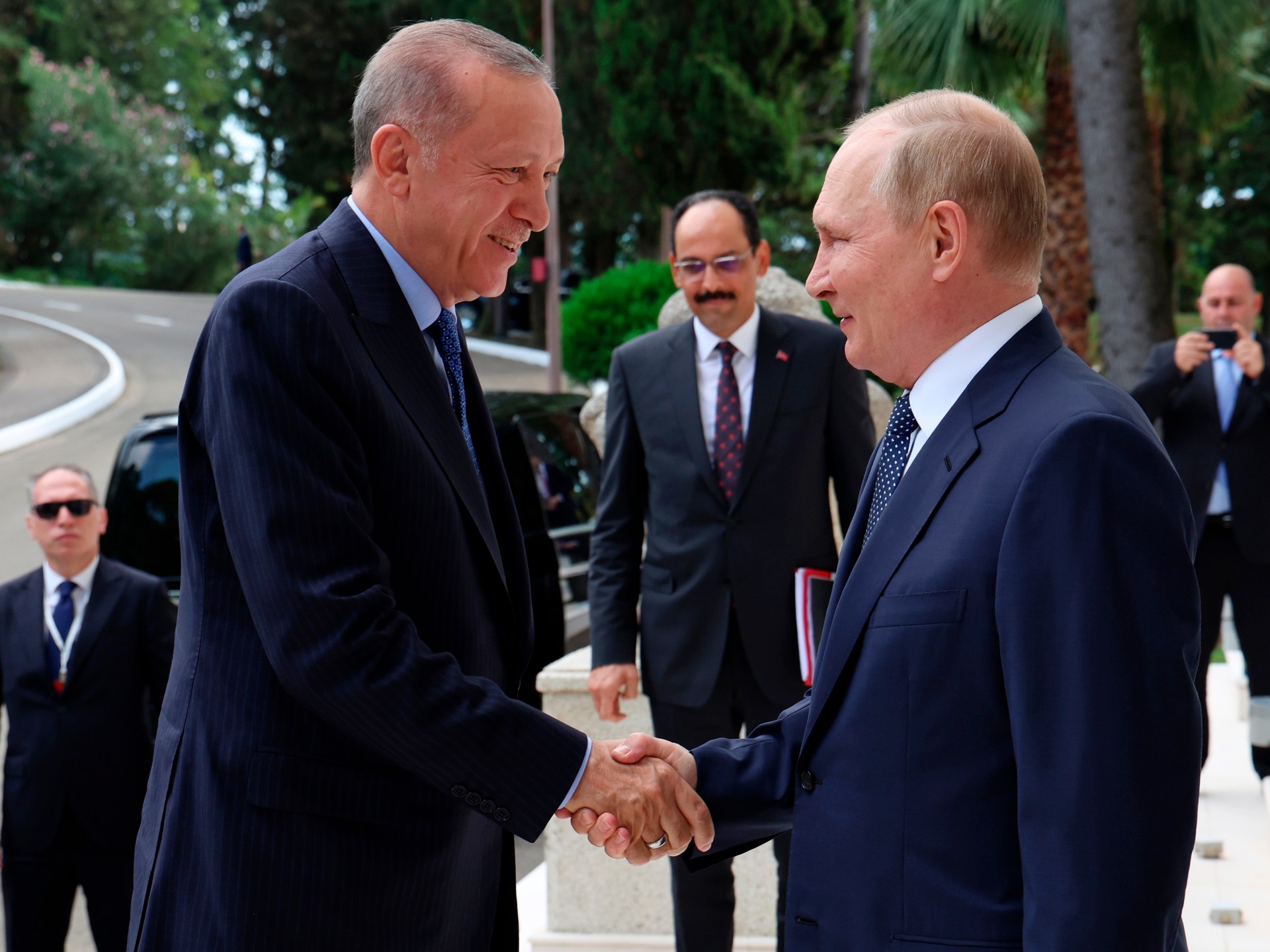All Russia had to do to avoid coming into conflict with NATO was (1) not promote separatists & Russian nationalists within the borders of NATO members & (2) not try to conquer Ukraine. Why is that hard?
Russia has been stirring up trouble all along NATO's borders. Putin's financed & given other aid to (non-violent - at least so far) Russian separatist groups in Estonia & Latvia, supported (including direct military aid) breakaway organised crime havens in Moldova & Georgia, invaded two neighbours of NATO, seized & annexed to Russia territory of one of those neighbours, carried out blatant criminal activity within NATO countries such as murdering Russian exiles, threatened NATO, individual NATO countries, & friendly neutrals between NATO & Russia and shown that he's utterly untrustworthy, e.g. by breaking treaties Russia made with NATO members. And all of that was before the current wat in Ukraine, which he began with no provocation whatsoever.
Who's the fucking threat? The gangster state headed by Putin, or NATO? What has NATO done to Russia that was in any way comparable with any of that?
Calling NATO a threat to Russia is like calling the police a threat to Sicily. They're a threat only to the Mafia.
Some of your accusations are accurate. Some less so. Georgia descended into a civil war over the attempt by it's own government (Gamsakhurdia anyone?) to commit ethnic cleansing. This was born out of a late-Soviet political conflict over the autonomous status of certain regiosn of the Georgian SSR. Had the Georgian government handled the situation better, things would have hardly gone down that road. And given the refugee situation Russia was facing, and the Pankisi Gorge situation, it's hardly surprising Russia got involved. Nobody wants to have something like 90's Yugoslavia on its borders. Moldova faced an internal political crisis, in the wake of the disintegration of the Soviet Union. Neither of these things were the product of Putin's regime. He inherited these situations. There's room to argue about whether he handled them well or not, but I suggest that the situation with Adzharia proves Saakashvili's complete untrustworthiness, and pretty much closed the door on any possible peaceful reintegration of S. Ossetia or Abkhazia.
On the question of Crimea, this is a region that was administratively reassigned to Ukraine by Soviet authorities, and a region that tried to secede from Ukraine in the 90's, but was prevented from doing so. Ukraine had ~2 decades in which to figure out some path forward for both Crimea specifically and it's large Russian minority in general. Ukraine failed spectacularly in this regard. Amid all the cries "Ukraine is Europe", Ukraine certainly didn't behave like a modern European country (at least not the ones in EU and NATO) towards these segments of its own population. Add to that the devastating corruption, and economic failures of Ukraine as a nation-state, and the stage was set for some sort of crisis.
Last but not least, your accuse Russia of criminal acitivity. Does the US not carry out black ops, and killings of people it wants gone? This might come across as whataboutism, but it isn't. Russia didn't come up with this behavior, or indeed the rest of its current foreign policy, all by itself. Russia looked at the US, and repeatedly argued that US behavior should be bound by rules. US actions against Yugoslavia, the invasion of Iraq, US "democracy promotion", etc. these were all lessons to Russian leadership and Russian elites about how politics are done in this 21st centure, and they took these examples to heart. Invade countries on the flimsiest of pretexts if it suits your political agenda? Clearly Saddam had WMDs and Ukraine had American biolabs. Supporting separatist groups when it suits you? The KLA went from terrorists to freedom fighters very quickly. Again, where do you think Russia learned this behavior?
The post-Cold War geopolitical model was "all animals are equal but some are more equal then others". Russia vehemetly rejected this model, stated so openly, and repeatedly pushed for the US to accept the same set of rules that most of Europe and the rest of the world live by. This of course did not, and could not happen. Russia then took the position that if the US can do this, so can Russia, full stop. This is where we are now.
None of this justifies the current invasion of Ukraine, nor the role Putin and Russia's elites have played in the deterioration of relations between Russia and the collective West. But understanding where this comes from, and why Russia chose to act this way is significant. Simply pretending there is inherent criminality to Puin&Co. is counterproductive, and both ignores and misrepresents significant portions of the context.


